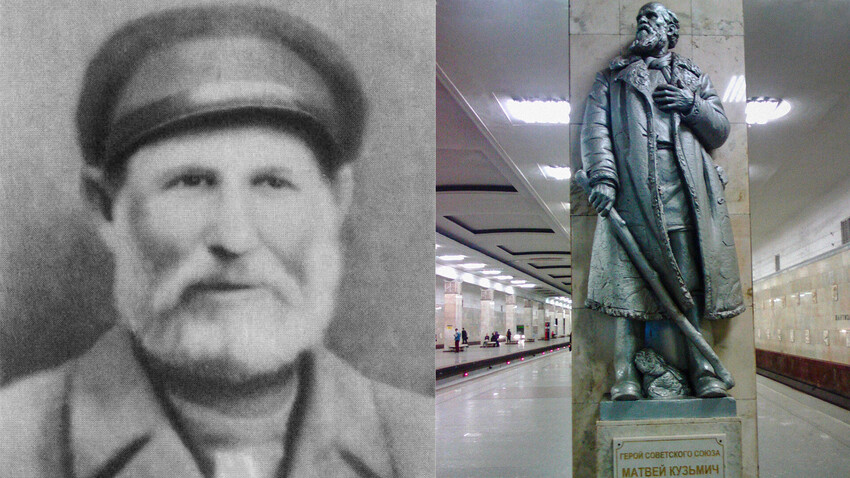
Inside Moscow Metro’s Partizanskaya station, there is a monument to a bearded peasant with a knotted stick. Partisan Matvey Kuzmin was the oldest (by date of birth) ‘Hero of the Soviet Union’ – a title he received posthumously.
Matvey Kuzmich Kuzmin came from the village of Kurakino (Velikie Luki District, Pskov Region) and met the Great Patriotic War when he was already over 80. By that age, he was already single, although he had 10 children from two wives. He didn’t enter a ‘kolkhoz’; instead, he lived by fishing and hunting and knew the surrounding forests very well. Besides, he was known in the village for his unsociable nature.
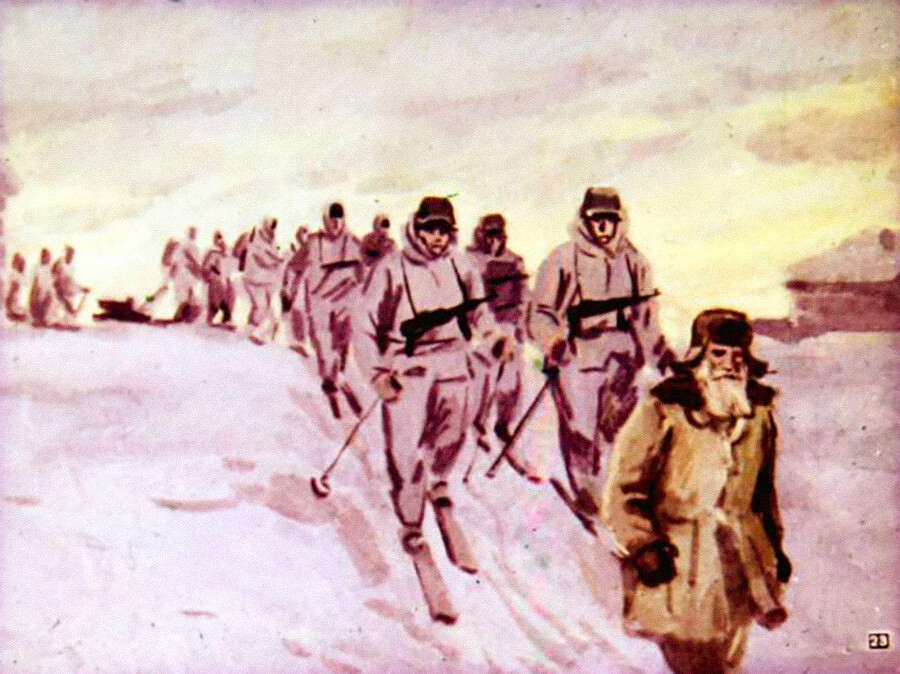
Matvey Kuzmin leading the German ski battalion straight into the Soviet ambush, illustration
A. Samsonov/Diafilm, 1971When his native village was captured by the Germans in August 1941, Matvey Kuzmich stayed – the old man had no strength to evacuate somewhere else. In February 1942, the German battalion commander offered 83-year-old Kuzmin a deal. In exchange for some flour, kerosene and a hunting rifle, Kuzmin had to lead the Germans to the positions of the Soviet army near the village of Pershino. As one of the eyewitnesses of the feat told the ‘Velikolukskaya Pravda’ newspaper in 1965, the German team of about 35 men was "the advance party of the ski battalion, which had the task of removing our combat escort and providing a surprise attack".
READ MORE: The most famous partisans in Russian history
Kuzmin agreed, but had time to warn his 14-year old grandson. On the night of February 13, 1942, Matvey Kuzmich went with the Germans. While he was leading the detachment through the forests, his grandson Vasily reached the location of the Soviet troops and warned of the threat.
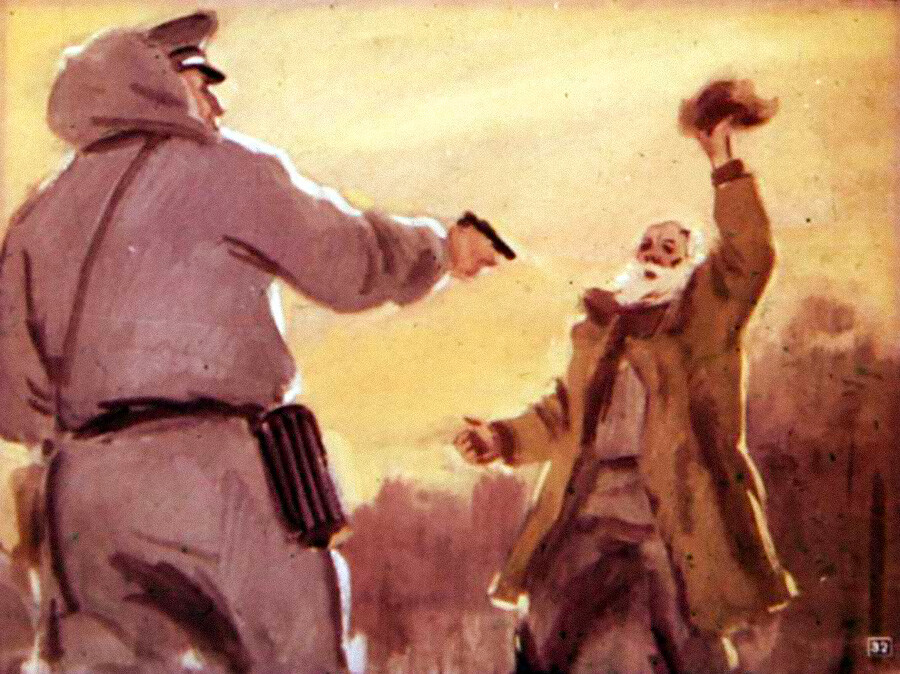
German officer kills Matvey Kuzmin, illustration
A. Samsonov/Diafilm, 1971When Matvey Kuzmin led the Germans out of the forest at 7 am, they immediately came under fire from Soviet soldiers. It is claimed that Matvey Kuzmich was killed on the spot by the commander of the German detachment, but, in any case, none of the Germans were left alive. ‘Velikolukskaya Pravda’ claimed that 250 people died, but the archive of the Ministry of Defense indicates that the detachment consisted of just 22 members of German intelligence forces, all of whom were killed by Soviet machine gun fire.
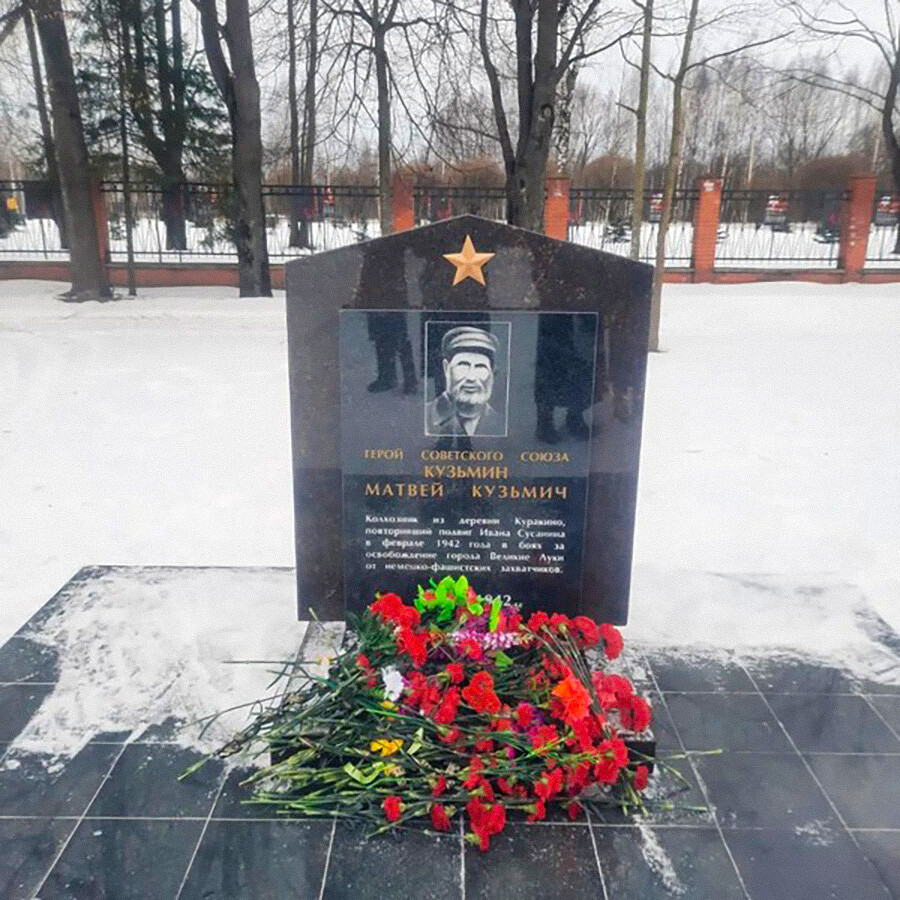
Matvey Kuzmin's grave in Velikie Luki
The culture committee of the Velikie Luki administrationWriter Boris Polevoy happened to attend Matvey Kuzmin's funeral and, on February 26, the leading Soviet newspaper ‘Pravda’ published an article titled ‘The feat of Matvey Kuzmin’, from which the whole USSR learned about the "new Susanin".
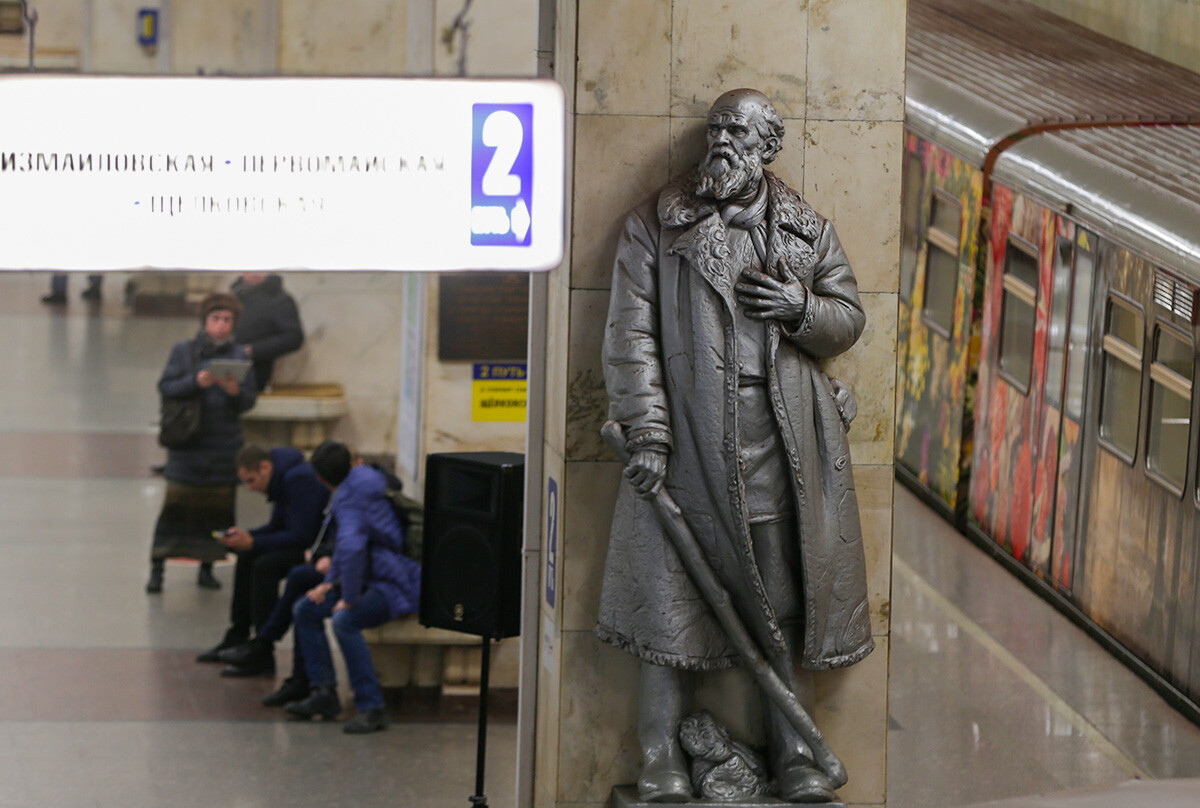
The monument to Matvey Kuzmin inside the Partizanskaya metro station in Moscow
Anton Denisov/SputnikThe memory of Matvei Kuzmich was immortalized many times. In 1944, a monument was erected at Moscow Metro’s Partizanskaya (then ‘Izmailovsky Park of Culture and Recreation named after Stalin’) station, with the sculptor a great namesake of Kuzmin – Matvey Manizer, the artist behind the sculptures at the ‘Ploshchad Revolyutsii’ metro station. In 1953, the remains of Matvey Kuzmich were solemnly reburied in Velikie Luki’s village cemetery. On May 8, 1965, on the 20th anniversary of the victory over Nazi Germany, Matvey Kuzmin was posthumously awarded the title of ‘Hero of the USSR’.
If using any of Russia Beyond's content, partly or in full, always provide an active hyperlink to the original material.
Subscribe
to our newsletter!
Get the week's best stories straight to your inbox